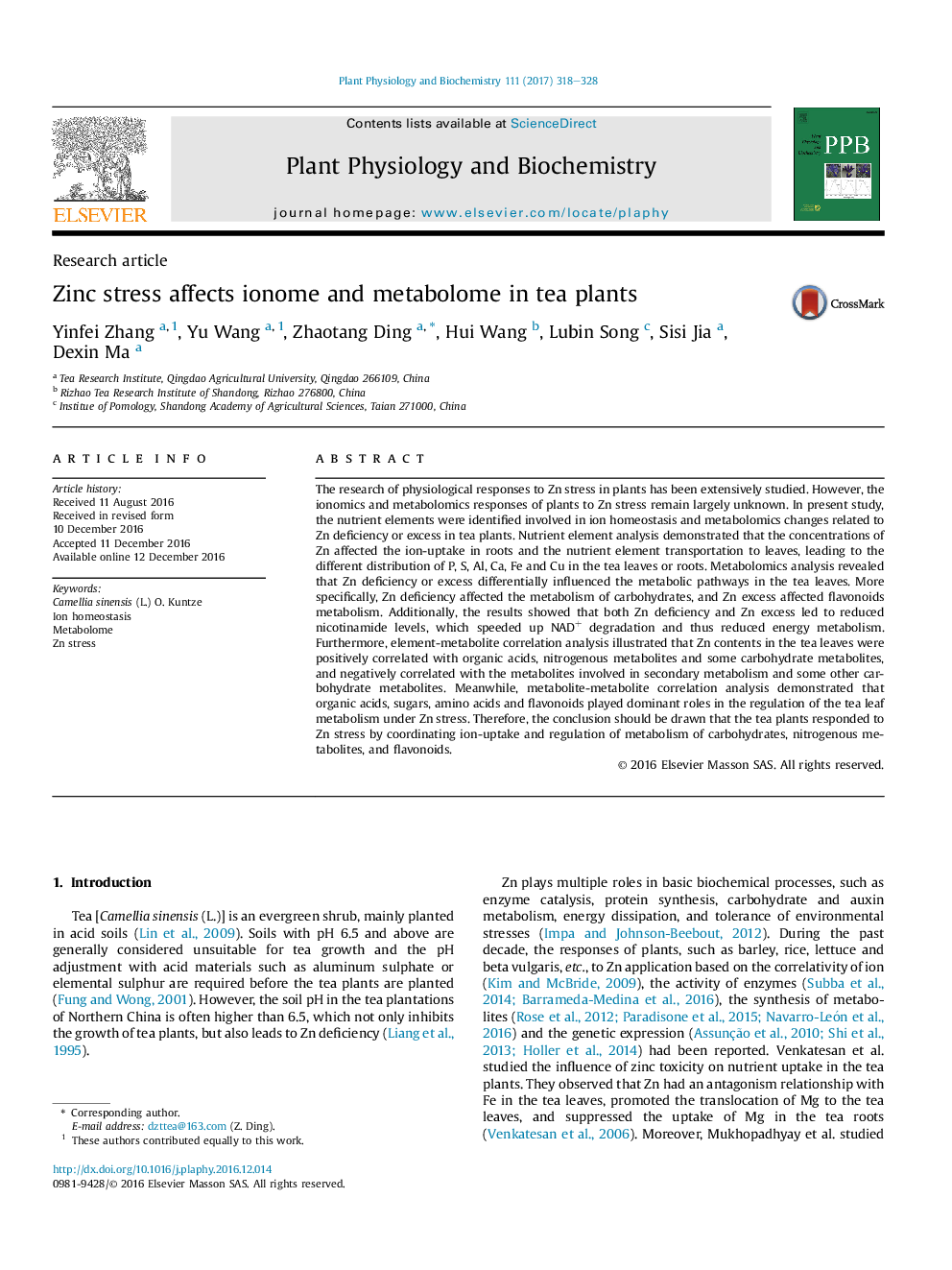| کد مقاله | کد نشریه | سال انتشار | مقاله انگلیسی | نسخه تمام متن |
|---|---|---|---|---|
| 5515556 | 1541910 | 2017 | 11 صفحه PDF | دانلود رایگان |
- The uptake of S, P, Cu, Fe, Ca and Al were markedly affected under Zn stress.
- Carbohydrate and nitrogen metabolites decreased in tea leaves under Zn deficiency.
- Catechins increased in tea leaves to withstand Zn excess.
- The higher level of nicotinamide promoted energy metabolism in Zn-moderate leaves.
- Coordination of elements and metabolites in tea plants enhanced Zn tolerance.
The research of physiological responses to Zn stress in plants has been extensively studied. However, the ionomics and metabolomics responses of plants to Zn stress remain largely unknown. In present study, the nutrient elements were identified involved in ion homeostasis and metabolomics changes related to Zn deficiency or excess in tea plants. Nutrient element analysis demonstrated that the concentrations of Zn affected the ion-uptake in roots and the nutrient element transportation to leaves, leading to the different distribution of P, S, Al, Ca, Fe and Cu in the tea leaves or roots. Metabolomics analysis revealed that Zn deficiency or excess differentially influenced the metabolic pathways in the tea leaves. More specifically, Zn deficiency affected the metabolism of carbohydrates, and Zn excess affected flavonoids metabolism. Additionally, the results showed that both Zn deficiency and Zn excess led to reduced nicotinamide levels, which speeded up NAD+ degradation and thus reduced energy metabolism. Furthermore, element-metabolite correlation analysis illustrated that Zn contents in the tea leaves were positively correlated with organic acids, nitrogenous metabolites and some carbohydrate metabolites, and negatively correlated with the metabolites involved in secondary metabolism and some other carbohydrate metabolites. Meanwhile, metabolite-metabolite correlation analysis demonstrated that organic acids, sugars, amino acids and flavonoids played dominant roles in the regulation of the tea leaf metabolism under Zn stress. Therefore, the conclusion should be drawn that the tea plants responded to Zn stress by coordinating ion-uptake and regulation of metabolism of carbohydrates, nitrogenous metabolites, and flavonoids.
245
Journal: Plant Physiology and Biochemistry - Volume 111, February 2017, Pages 318-328
